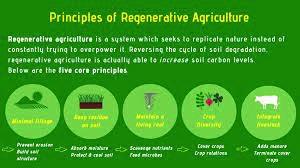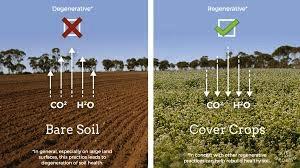 By a 92 to 8 vote, the U.S. Senate passed the Growing Climate Solutions Act. The Act promotes voluntary action by farmers to develop sustainable practices and to benefit from carbon-offset transactions. The legislation promotes sequestering of greenhouse gas (GHG) emissions and directs the Department of Agriculture to establish both a Greenhouse Gas Technical Assistance Provider Program and a Third-Party Verifier Certification Program. A USDA Release following the vote noted “these actions will provide transparency, legitimacy and informal endorsement of third-party verifiers and technical service providers to help landowners generate carbon credits through a variety of agriculture and forestry related practices.” Companion legislation is awaiting passage in the House.
By a 92 to 8 vote, the U.S. Senate passed the Growing Climate Solutions Act. The Act promotes voluntary action by farmers to develop sustainable practices and to benefit from carbon-offset transactions. The legislation promotes sequestering of greenhouse gas (GHG) emissions and directs the Department of Agriculture to establish both a Greenhouse Gas Technical Assistance Provider Program and a Third-Party Verifier Certification Program. A USDA Release following the vote noted “these actions will provide transparency, legitimacy and informal endorsement of third-party verifiers and technical service providers to help landowners generate carbon credits through a variety of agriculture and forestry related practices.” Companion legislation is awaiting passage in the House.
According to Attorney Stacy H. Mitchell of Akin Gump, both farmers and landowners will be able to participate in verifiable GHG emission reduction and sequestration activities that could add to farm income. The Bill has the support of numerous farming organizations.
 Cargill is currently working with Soil Capital on a project in France to apply regenerative agriculture including cover crops and no-till cultivation. According to a company release on September 16th, Cargill will support efforts to adopt regenerative farming practices ultimately extending across ten million acres of North American farmland within ten years. The program will encourage crop rotation including corn, wheat, canola and soybeans and contribute to the company commitment to science-based climate mitigation. Cargill will require supply chains to reduce GHGs and to protect water resources. Ryan Sirolloi, director of sustainability for row crops at Cargill stated, “Land is a farmer’s most valuable asset, key to their livelihood and productivity. By supporting adoption of the soil health principles with our farm partners we can build healthy soils, increase resiliency and profitability and ensure their success and the viability of their land for future generations.” Initiatives currently implemented by Cargill include:
Cargill is currently working with Soil Capital on a project in France to apply regenerative agriculture including cover crops and no-till cultivation. According to a company release on September 16th, Cargill will support efforts to adopt regenerative farming practices ultimately extending across ten million acres of North American farmland within ten years. The program will encourage crop rotation including corn, wheat, canola and soybeans and contribute to the company commitment to science-based climate mitigation. Cargill will require supply chains to reduce GHGs and to protect water resources. Ryan Sirolloi, director of sustainability for row crops at Cargill stated, “Land is a farmer’s most valuable asset, key to their livelihood and productivity. By supporting adoption of the soil health principles with our farm partners we can build healthy soils, increase resiliency and profitability and ensure their success and the viability of their land for future generations.” Initiatives currently implemented by Cargill include:
- Establishing a soil and water outcomes fund incentivizing farmers to practice regenerative farming
- Working in partnership with the Ohio State University to encourage regenerative farming practices
- Cooperating with the Nature Conservancy, McDonald’s Corporation and Target Corporation to support farmers in Nebraska who practice regenerative farming
- Working with groups including Practical Farmers of Iowa, the Soil Health Institute and state associations to reduce greenhouse gas emissions by improving agricultural practices.
It is considered likely that egg producers will in the future be obliged by customers to source feed ingredients cultivated using regenerative farming programs. The immediate limitation is availability of certified grains. One New England producer of specialty eggs has already launched a premium brand claiming regenerative agriculture as part of the sustainability claim.